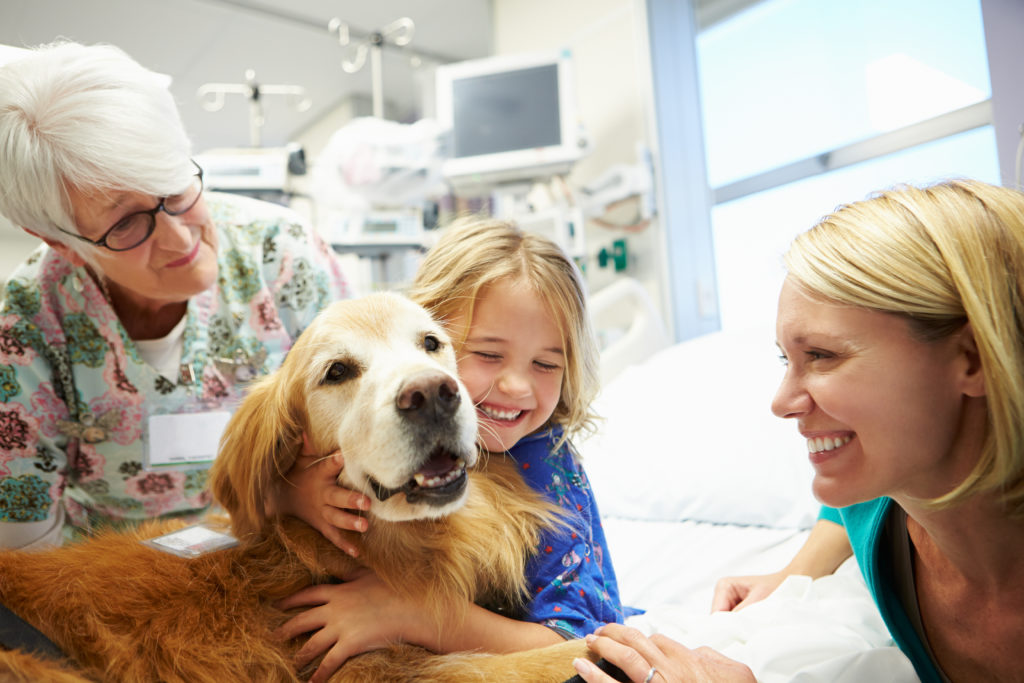Quick Hits
Daily brief research updates from the cognitive sciences

There have been lots of studies into the positive impacts of having pets around us – but this study just published looked at brain activation patterns while being with a dog, petting a dog, and with an ersatz cuddly toy lion.
The research showed that brain activation patterns were highest when petting dogs – unsurprising because this was the most interactive condition in the study. The researchers saw increased activity in the prefrontal cortex and notably in the medial prefrontal cortex which is associated with human social functions.
More surprisingly was that the cuddly toy elicited smaller responses – obvious you may think but in this study the cuddly toy was filled with a hot water bottle to be at the same temperature as a live dog and to have a similar fur texture. This was to elicit a response as close to the real thing as possible.
The response was lowest for the cuddly lion (but it did elicit a response) – possible because of the social activation as we realise it is not a live animal.
What was also interesting is that the response for petting the dog lingered on for a lot longer than any of the other conditions.
This shows that the response is not only in the moment but also has a lasting impact – that’s one reason to have pets but also an important consideration in animal assisted clinical therapy.

Andy Habermacher
Andy is author of leading brains Review, Neuroleadership, and multiple other books. He has been intensively involved in writing and research into neuroleadership and is considered one of Europe’s leading experts. He is also a well-known public speaker, speaking on the brain and human behaviour.
Andy is also a masters athlete (middle distance running) and competes regularly at international competitions (and holds a few national records in his age category).
References
Rahel Marti, Milena Petignat, Valentine L. Marcar, Jan Hattendorf, Martin Wolf, Margret Hund-Georgiadis, Karin Hediger.
Effects of contact with a dog on prefrontal brain activity: A controlled trial.
PLOS ONE, 2022; 17 (10): e0274833
DOI: 10.1371/journal.pone.0274833
More Quick Hits
Your brain on near-death experiences
Near-death experiences have fascinated many people ever since they have been reported. And these experiences guide our view of how we die: the memories of your life passing in front of your eyes, the tunnel of light, the floating movement towards a bright light....
Social networks grow your brain
The headline is a bit “click baity” but it is what a group of researchers found. To be more specific they found in macaques (cute monkeys) in the wild that having more grooming partners grew different regions of the brain. Grooming is the primate version of having a...
What do creative brains look like?
We’d probably all be happy to be a bit more creative — though research into our own opinions show that many people do actually consider themselves to be above average in creativity. An obvious self-bias. This is where scientists who study creativity come in and find...
New gender biases discovered
There have been many studies on gender biases, and I have followed, written, and spoken about many of these biases over the years (over a decade actually) but two studies have just come out that caught my eye. One out of New York University focused on gender natural...
Growth of your brain over your life
So, we all know that our brain grows very quickly as babies and children and then after a certain age, younger than some of us may like to think, there begins a slow decline. But precisely what and how is the question. Well, this is a question that an international...
How to reduce loneliness
I have reported multiple times on loneliness during the pandemic – mostly because interest and research into loneliness has taken a large uptick. I have also reported on how to combat this and was happy to see that a piece of research just out proved what I had...






